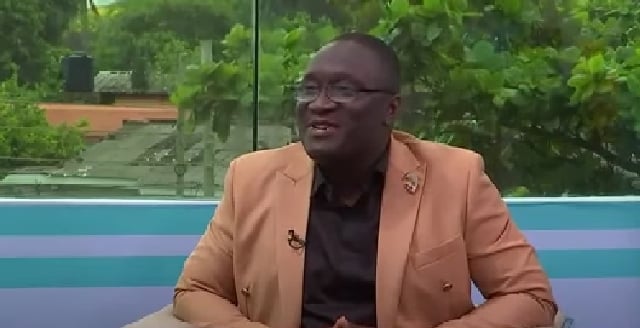Samuel Apea-Danquah, popularly known as Yellow Ghana, has launched a legal challenge against the Electoral Commission (EC) of Ghana after being disqualified from participating in the upcoming presidential elections. The EC’s decision to disqualify him, along with ten other candidates, was based on purported irregularities found in their nomination forms. Apea-Danquah filed a motion on October 10, aiming to secure a court order that would annul the EC’s disqualification ruling and an order of mandamus to mandate the commission to restore his status as a valid candidate for the 2024 general elections. His legal action not only represents a personal fight for reinstatement but also aligns with a broader wave of similar efforts by other candidates who have been disqualified.
In the wake of Apea-Danquah’s lawsuit, several other disqualified candidates have sought legal recourse as well. Notably, Bernard Anbataayela Mornah, the flagbearer for the People’s National Convention (PNC), has also taken steps to legally contest his exclusion from the race. This collective series of disputes highlights significant discontent among potential candidates regarding the nomination process and the regulations enforced by the EC. Furthermore, Kofi Asamoah-Siaw, the flagbearer for the Progressive People’s Party (PPP), has also initiated legal action against the EC, similarly challenging his disqualification on grounds that coincide with Apea-Danquah’s case.
The backdrop of these lawsuits is an electoral landscape characterized by fierce competition and heightened scrutiny regarding the credibility of the EC’s processes. The disqualification of multiple candidates based on alleged irregularities raises critical questions about the transparency and fairness of the electoral system in Ghana. Candidates like Apea-Danquah are not only fighting to reclaim their right to run for office but are also highlighting perceived flaws within the EC’s vetting criteria which could potentially disenfranchise voters. This scenario sheds light on the often contentious relationship between electoral bodies and political aspirants, especially in a democratic setting where fair representation is paramount.
As the legal battles unfold, the implications for the EC and the electoral process at large grow increasingly complex. If Apea-Danquah and others succeed in their lawsuits, it may lead to significant changes in how the EC conducts its candidate vetting process in future elections. Such outcomes could also instigate a reassessment of the legal framework governing elections and the qualifications required for candidacy. The attention towards Apea-Danquah’s case, alongside those of his counterparts, serves as a crucial moment for the Ghanaian political landscape as it grapples with issues of governance, representation, and the integrity of the electoral process.
In the broader picture, the actions of disqualified candidates to seek legal redress reflect a crucial aspect of democratic practice — the right to contest electoral rulings. It underscores the importance of judicial oversight in electoral processes, which is fundamental for both safeguarding democratic principles and ensuring that electoral bodies like the EC remain accountable. As these legal proceedings draw public attention, they are likely to influence public perception of the EC’s legitimacy and the overall electoral ecosystem in Ghana. The outcomes of these cases could either reinforce the commission’s authority or expose vulnerabilities that might require substantial reform.
In conclusion, Samuel Apea-Danquah’s lawsuit against the Electoral Commission encapsulates a critical moment in Ghana’s electoral dynamics, where disqualified candidates are challenging processes perceived as flawed. Their collective efforts signify not only personal stakes but also a broader demand for transparency and integrity in the electoral process. As various candidates navigate the complexities of legal action against the EC, the repercussions of these decisions could reverberate throughout Ghana’s political future, shaping the discourse around elections, representation, and the accountability of electoral institutions. The path forward for Apea-Danquah and others remains uncertain, but it undeniably opens a crucial dialogue on the principles of democracy and fair representation within the nation.


